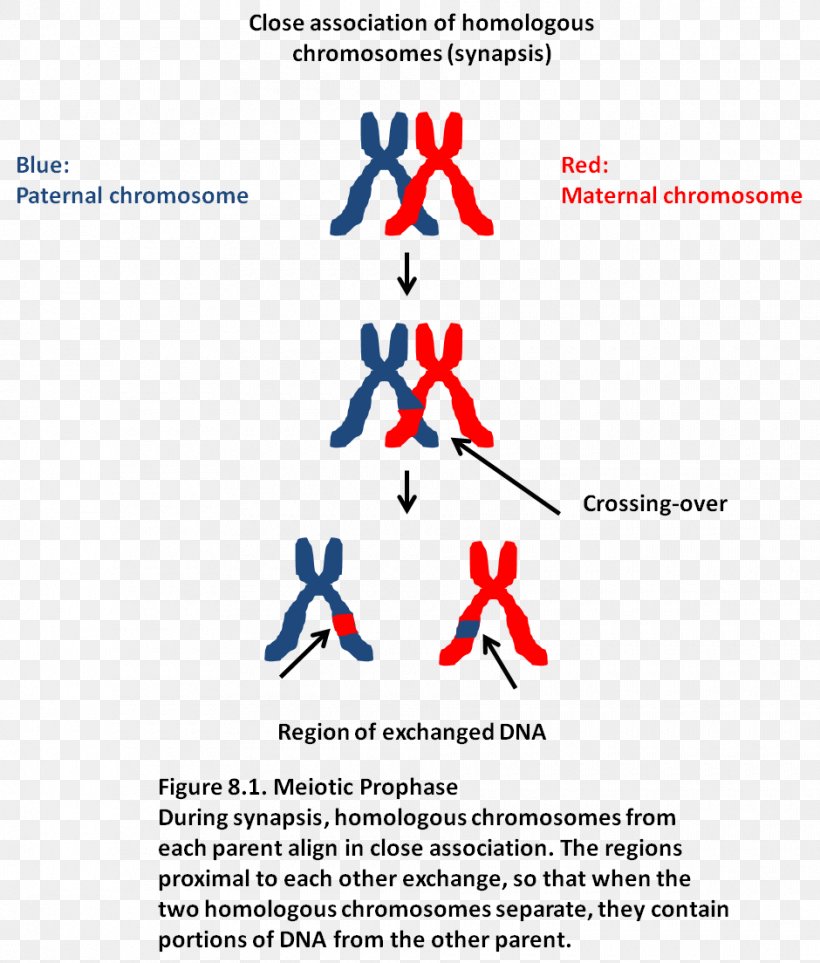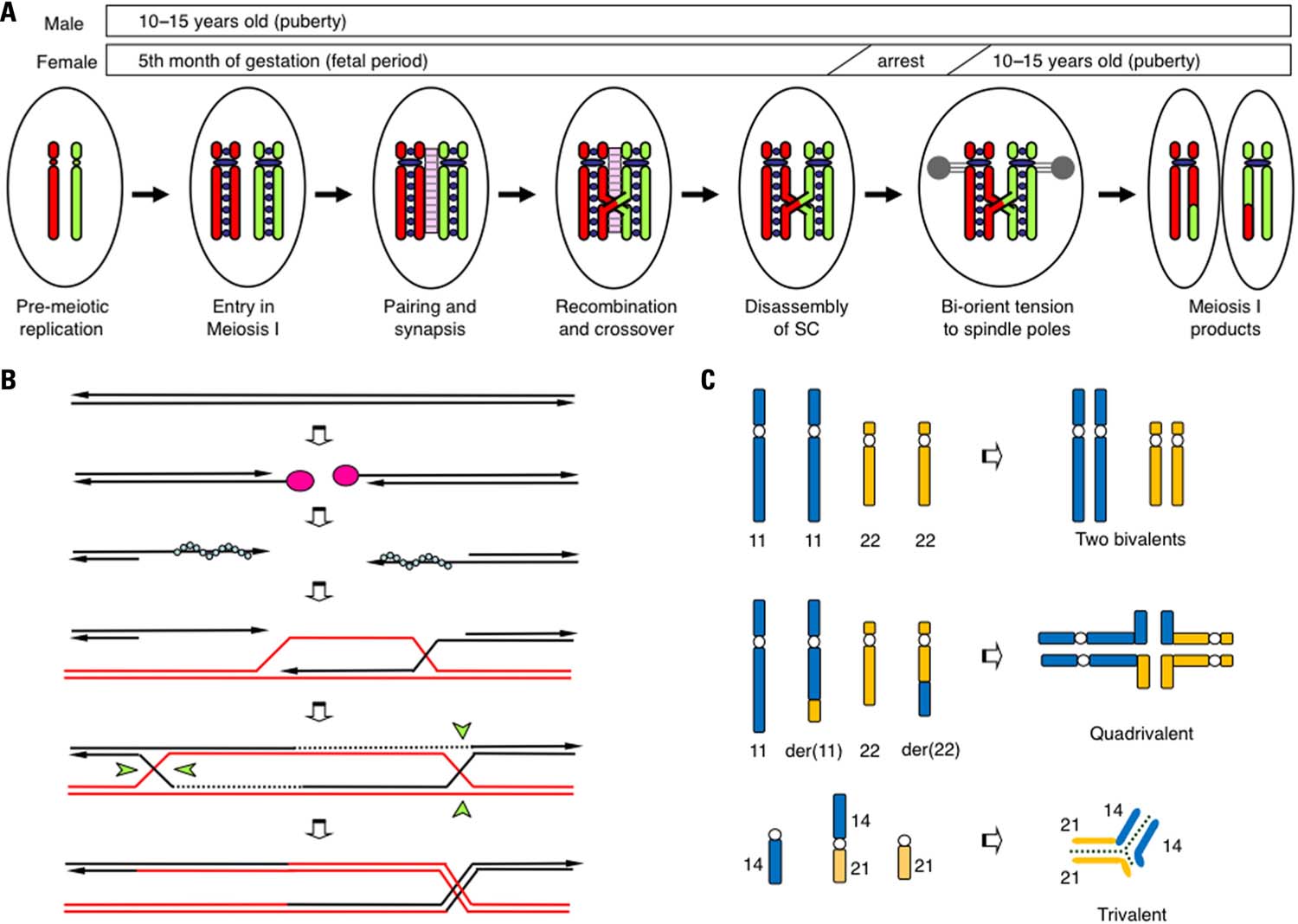Chromosomes in mitosis and in meiosis A Chromosomes in mitosis and Biology Diagrams Chromosome movement is a key aspect of many biologic processes. It is well-established that chromosome movement plays an important role in chromosome segregation (Reviewed in 1).In addition, chromosomal movement is important for basic cellular processes such as transcription and DNA damage repair (Reviewed in 2, 3).Chromosome movement is also a conserved feature of the meiotic program and is Synapsis or syndesis is the lengthwise pairing of homologous chromosomes.Synapsis mainly occurs during prophase I of meiosis I. A protein complex called the synaptonemal complex connects the homologues. The chromatids intertwine, breaking apart and exchanging pieces with one other in a process called crossing-over.The cross-over site forms an "X" shape called a chiasma. The early events necessary for correct chromosome segregation are the formation of double-strand breaks (DSBs), homologous pairing, synapsis, and the repair of DSBs into crossovers or noncrossovers (5, 6).During murine meiosis, the first step is the induction of ~400 DSBs, which leads to homology searches between homologs that establish pairing ().

A key step in meiosis is synapsis, where homologous chromosomes align and exchange genetic material, reshuffling genes and increasing variation among offspring. Chromosome Pairing in Early Meiosis. At the onset of meiosis, homologous chromosomes locate and align with their corresponding partners to ensure accurate genetic segregation. During the lengthy meiotic prophase, all autosomal chromosomes synapse, by forming a special protein structure called the synaptonemal complex, which connects the chromosomal axes. In mouse, there also is a very strong pachytene arrest during male meiosis whenever synapsis and DSB repair are affected. 2 In addition,

What Is Synapsis? Definition and Function Biology Diagrams
General features of meiosis. (A) At meiosis I, homologs segregate; at meiosis II, sisters segregate.At metaphase I (left), maternal (red) and paternal (black) chromosomes are held together by a chiasma comprising a reciprocal crossover (CO) plus connections along sister arms, which are released during segregation.(B) Monochiasmate bivalent of Locusta after bromodeoxyuridine (BrdU) incorporation.

Synapsis is a crucial process that occurs during the prophase I stage of meiosis. It involves the pairing of two homologous chromosomes that come together to form a structure known as a bivalent or a tetrad. This pairing is precise and gene by gene, meaning that the same genes on the two chromosomes align with each other. The synapsis process is facilitated by a protein structure called the In the intricate dance of genetic inheritance, meiosis takes center stage. During this critical process, homologous chromosomes, mirror images carrying identical genetic material, embark on a journey of precise alignment. This crucial step, known as synapsis, involves the pairing of homologous chromosomes, paving the way for genetic recombination and the formation of new, diverse gametes.

Meiosis: Synapsis In Genetic Inheritance Biology Diagrams
Synapsis during Meiosis. The circled area is the part where synapsis occurs, where the two chromatids meet before crossing over. Synapsis or Syzygy is the pairing of two chromosomes that occurs during meiosis.It allows matching-up of homologous pairs prior to their segregation, and possible chromosomal crossover between them. Synapsis takes place during prophase I of meiosis.

Synapsis Definition. Synapsis is an event that occurs during meiosis in which homologous chromosomes pair with their counterparts and remain bound due to the exchange of genetic information. During meiosis, homologous chromosomes are paired and then separated to reduce the genetic content of the resulting gamete cells.

